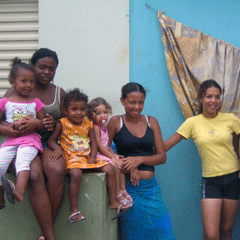[25 July 2013] -- Brazil’s Ministry of Cities has passed a landmark policy designed to safeguard the rights of residents who are involuntarily resettled from their homes.
The policy was formulated with support from the World Bank and Cities Alliance as part of our ongoing partnership with the Ministry of Cities.
Involuntary resettlement has emerged as a critical issue in Brazil as it expands implementation of its massive Growth Acceleration Programme (PAC), which includes the world’s largest slum upgrading programme.
Brazil already has some policies in place to protect residents – the country’s Federal Constitution ensures the social right to housing and dignified living conditions, and its City Statute regulates the use of urban property for the collective good. However, resettlements were being implemented on an ad hoc basis from project to project, with varying treatment and compensation for those affected.
A study conducted by the World Bank in 2010-2011 noted that Brazilian authorities across the board recognised involuntary resettlement as a significant part of the country’s development agenda, and that a guiding policy was needed. The Ministry of Cities approached the World Bank and the Cities Alliance for the necessary support.
Formally approved on 18 July 2013, the new resettlement policy regulates procedures and measures to be adopted in cases of involuntary resettlement of families from their homes or business (place of economic activities), caused by the execution of PAC programmes and actions under the management of the Ministry of Cities.
Some key elements of the policy include:
-- Before any interventions proposed to the Ministry of Cities take place, an assessment must be conducted that includes a study of alternatives to involuntary displacement as well as effective economic solutions.
-- People residing or developing economic activities in an area targeted for intervention should only be displaced in specific cases, such as if the intervention is critical for infrastructure projects, ensures adequate housing, eliminates hazardous risk factors, and protects environmental conservation areas.
-- If displacement is inevitable, a plan for resettlement and compensatory measures must be drafted to ensure that affected people will be offered adequate solutions to offset the displacement. These plans must be approved by the Ministry of Cities or a designated alternate.
-- Failure to follow the regulations will result in suspension of funds for the project.
The policy is a significant development for social housing in Brazil. Its implementation will embed the concept of social sustainability within the Ministry of Cities’ substantial investment programmes, and establish a benchmark for other Brazilian authorities who are implementing infrastructure programmes. The policy also has the potential to act as an international benchmark for a controversial policy issue that governments prefer to avoid.

The issue of involuntary resettlement has been a major one in Brazil as it expands its slum upgrading programmes and prepares for several major world events.
Related Items
Text of Brazil's involuntary displacement policy in Portuguese
The City Statute of Brazil: A Commentary
Exploring Lessons Learned from a Decade of Slum Upgrading in Brazil




